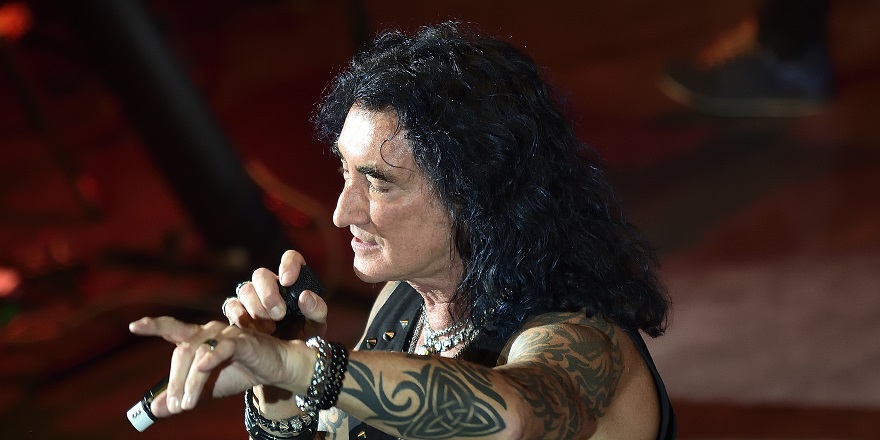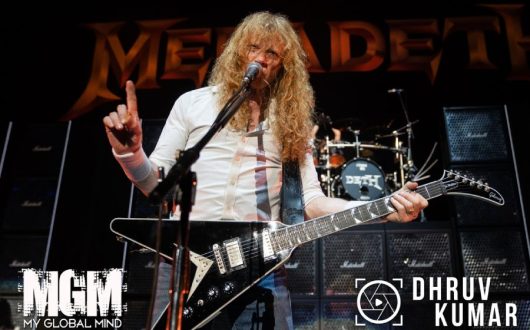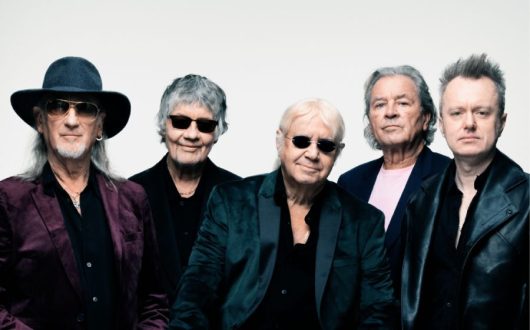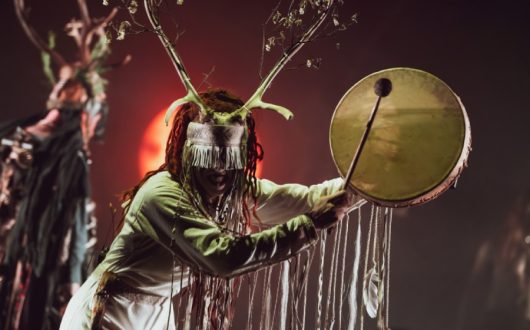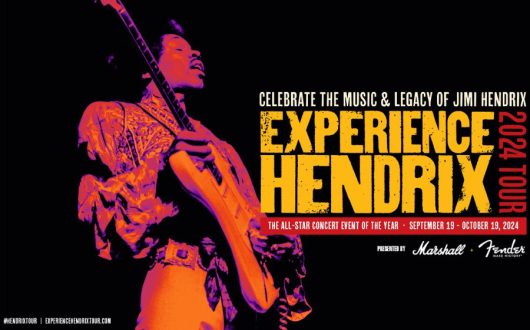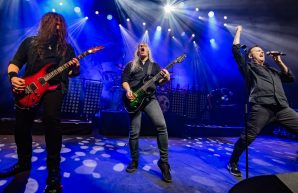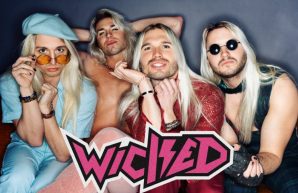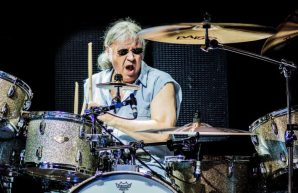Interview and Pictures : Adrian Hextall \ MindHex Media
Robin McAuley is currently on tour. Gary Barden is currently on tour, Graham Bonnet is currently on tour. Why is this a big deal you might ask? A small matter of the band that they are playing with, and more importantly, the lead guitarist, Michael Schenker. Performing once again with all of his former vocalists and touring under the Schenkerfest banner, the tour finally hit the UK this week and we spoke to Robin to get the low down on the reunion with Michael and the level of excitement (judging by the excellent ticket sales) from the public at seeing the show.
RM: Actually, they’re not nearly as excited as I am. This will be my first time back in the UK and… oh, my God, I can’t remember and that’s a fact! We just came in from Japan yesterday so we just finished Loud Park [Festival] on Sunday night and then Osaka on Monday night so we came–I arrived back in… I don’t know, maybe 7:00 – 7:30 something last night. But an absolutely amazing experience just off the hook. I can’t even… it all seems surreal really. But 35 years later, all three singers would be up there together just goofing off and having a good time.
AH: The Japanese audiences have loved you from Day 1 pretty much, haven’t they?
RM: It is true. And so kudos to the Japanese fans. What I find particularly interesting is that so many people ask how is it in Japan all of these years later and you know last year when we played in Tokyo and we recorded the live DVD, I think one of the first things I noticed was that the demographic was much younger than I expected. I was thinking well, of course you’ll have the die hard Michael Schenker’s fans. Hopefully they’ll come back out to see us. But there was a whole new audience of much younger fans, just singing everything like we just released it and I’m going, “Wow!” And it side swipe me and I remember being up on stage and Michael pointing at all of these kids just singing along and I’m going, “Shit dude! I didn’t expect this.” It was awesome.
And the Japanese fans are certainly loyal to say the least, you know, in big numbers too.
AH: Absolutely. And I mean, of the three of you singing with Michael, I mean the fact that you say that you get all three of them and you get to see those unique eras with the band. I mean for me, when I was told that you guys are coming over it allows me to cross off a must see gig on my bucket list. I’d not managed to see you live before.
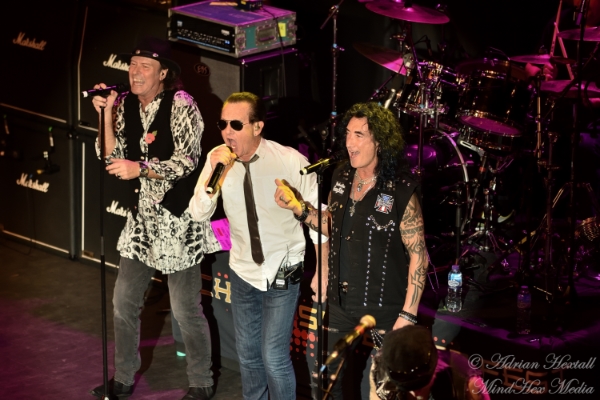
RM: Ohh… [laughs] You know, and I’m younger than those other guys. No, I’m not. I’m actually older than Gary, I think. I think there’s about a two-year difference between me and Gary. Graham, I wouldn’t even going to discuss that guy. [laughs]
AH: We’ll just go with ‘Graham’s timeless’, I think.
RM: Yes, he is timeless and he’s quite dapper. [Per Google, if you don’t know, dapper – smart, spruce, trim, debonair, neat, tidy, neat and tidy, crisp, well dressed, besuited, well groomed, well turned out, smartly dressed, elegant, chic, dashing – pretty much the perfect description for Graham Bonnet.]
AH: Oh, definitely.
RM: But still he is really. I suppose they didn’t just– to put it in a nutshell, when I got the call that Michael had come up with this idea for all three singers, there was no hesitation, it was like “Oh, my God you know, for all of my time with Mcauley Schenker, you know I got to be able to sing all of those songs.” And now to be up there with Gary singing his own material and Graham singing his material, they are really three very different faces.
You know, Gary is really the 70s guy up there, because that’s really from that material of 70s into the early 80s when that material came out. Because I was with Grand Prix at the time when Michael Schenker Group was with Chrysalis records and we have moved from or CA records over to Chrysalis for the Samurai record. So we were kind of stable mates and I had that opportunity in– I don’t know, ’82 maybe to join forces with Michael and I had maybe commitment to Grand Prix and we were touring and trying to get our end of the stuff out. And just, you know, the timings, everything and… I was too young, what did I know? [laughs]
But anyway, you know…long story and less four years later I end up singing with Michael so I guess if you believe in whatever is meant to be will be, will be.
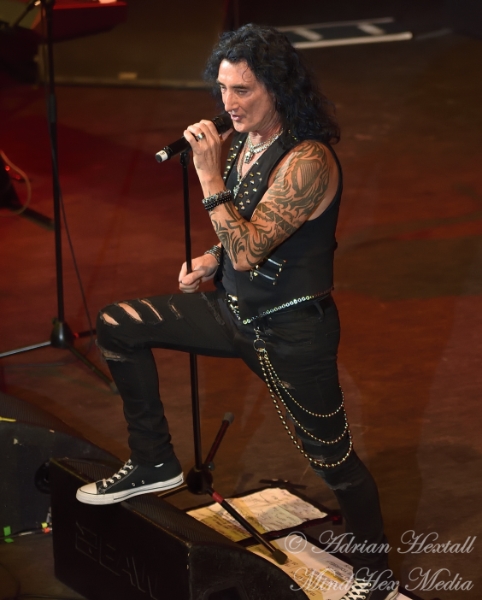
AH: For you with Michael though, it’s probably one of the most stable points in his career, isn’t it?
RM: I don’t know. It was a very different thing. I mean, we were under– and I say we, we the band, with the sound of MSG at that time were definitely under an extreme amount of pressure, because you know, it was the hair…80’s. Everything was very much surrounding the big power ballad; MTV was new…VH1 was new. You can get a look in if you didn’t have– if you weren’t MTV friendly and or VH1 friendly with videos, etc… etc…. So there was like, “Give me the power ballad, give me the hit single, give me the charting one,” and it was like, “What the fuck do I know?” I don’t know what that is, right? And you know, you’d write material and just you…we didn’t sit down and go, “Okay, this has to be an MTV song.” I mean, “What’s an MTV song for God’s sake,” right? And that should be in the format dude! I said, “What’s a format? You know you write, you feel it, bum there it is!” Right? And then they go, “Oh, I need something a little bit more,” and then you just, you know, put the notes ringing and I get led from A to B and we didn’t want that. We just didn’t want to sort of succumb to the, you know, “Don’t tell me you never write a song. You write it,” you know. Anyway, we were fortunate enough to get songs that were MTV friendly, radio friendly. American rock radio is very different. I remember when I started listening to music in Ireland, you know, my big thing was Moe Town. Oh, I could listen to as much Motown as I wanted and I just loved it and Paul Rogers came along and screwed everything up.
[laughter]
AH: Yes, you can’t blame him for that though, I mean, the guy has got a good voice.
RM: I thought he’s incredible. You know I’d be very fortunate over the years now coming full circle, you know, I had been a part of a huge show in Vegas called, Raiding the Rock Vault, and our musical director is Howard Leese. Howard’s a guitar player.
And he’s also been Paul Roger’s MD for fifteen plus years, so through Howard I’ve actually got to meet Paul. Paul has come out to the show a few times and that guy sings his ass off.
AH: Oh, doesn’t he? Yes.
RM: He’s amazing! He looks great, he sounds great and I’m going, “This is the stuff we grew up on right here and it’s alive and well, and it’s so awesome.” I mean, it’s so awesome! And plus the fact that he stays in great shape and I totally respect that because I don’t know what happens– I say this kindly, I don’t know what happens to a lot of people, they think, “Well, I’m old now, I don’t have to take care.” I’m the opposite, you know, I go, “Age has nothing to do with it. If you want to perform, it’s your job. It’s your job to still play the part and nothing else. So when I go, the fans expect something…you know? Somebody once said to me in Vegas, you know, fans are forgetting that sooner or later with time we get older. What they don’t accept is we get older and fat. [laughs]
AH: You’d never want to see your hero on stage looking like you.
RM: No, no, no. I’m not being conceited here. I mean, it’s like, “Dude! You might just wanna stop eating at some point.”
[laughter]
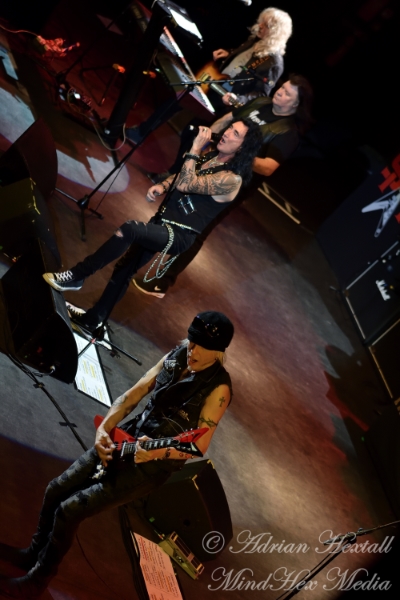
AH: But you know, it’s one of those, one of the things I wanted to raise is well, I mean obviously with the three of you on stage, your voice sounds like it does 20-30 years ago. I mean, you must be doing something to sound so good still.
RM: Well, thank you for that. I have tough time taking compliments. I don’t think about it so much other than the fact I work really hard at maintaining the only thing that I have to offer which is my voice, my instrument. To do that, I have to work really hard and it’s not something that I could take for granted because you know, as we’re travelling– right now for example in Japan, everybody was sick. I wasn’t sick. Gary wasn’t sick, Graham– he wasn’t sick per se but he wasn’t feeling great. Michael was very sick, Steve was very sick. Ken and Chris, I think they just– well, Chris drank so that kept away the bugs. [laughs] So right from the first day we had an extremely long day together in a rehearsal facility, and so we were just scared to hell that we were just in close proximity to each other. We were just all going to get sick. And not just because we were there for this huge Loud Park show but now we’re going to come back to Europe and we have another two weeks and I don’t want to be sick.
And I sing five nights a week in Vegas. We have a Music Classic Rock show, so everybody is a cast of ten. There’s a lot more people in that, but there’s a cast of ten on stage when putting the whole show together. So for one person, if you show up sick, you’ll get it in the neck. It’s like, “Get your ass out of here. You don’t need to be here!” Because one bad apple in the barrel, there it goes. Then you get into a scenario where you have to start bringing in subs and there has to be a list of subs that are available to step in at a minutes notice. And not everybody lives in Vegas. I don’t live in Vegas, I’m here in LA. I love to work in Vegas but my family is here in LA and my kids go to school here. I have kids. I have 18 year old boys. But you have to take care– just to get back to the initial part of the convers. You have to keep yourself on check. And if you’re going to get sickl all the time, you’re not taking care. I mean if you get sick, you’re getting sick. But you know, you have to play preventing the doctor all the time and it’s pain in the ass. Believe me, I’d love to go and eat whatever the hell I want and drink whatever I want, but that would catch up real quick, you know.
AH: Yes, you just can’t do it anymore.
RM: I’m not a little boy anymore, you know. So it’s hard on these old bones sometimes, you know. [laughs]
AH: What about your boys then, with them coming up to 18 years old now. I mean, are they looking to following footsteps or–?
RM: God forbid, Adrian. Actually, my son, KC just came in from his first– they have college at different times of the day and his morning classes are done. And he’s home and he heads upstairs and first thing he does is he’d grab that guitar. And he loves his music, KC. He’s actually taking music as his major and music theory is just killing him right now, so I have sent him for extra classes to help him with that. But he’s dedicated to the college, he just loves it. I don’t encourage it, it has to come from him naturally.
AH: That’s fine.
RM: It has to be something that he wants to do. And he’s totally into Vinyl right now. He’s got so much Vinyl. He bought himself a turntable and he just loves really old Vinyl and I think that’s really cool. I think that’s really cool. My son, Jamie is a…got skateboarding. Take up the environment…he’s taking Environmental Science for his major. He’s like when his brother goes to brush his teeth in the morning, he goes, “Really, do you need that much water to brush your teeth?”
[laughter]
RM: “Hey, turn the faucet off dude.” [laughs]
AH: I love that.
RM: But he’s into skateboarding. He’s very outdoors. He just go out with his skateboard but his skateboarding this year is an official Olympics for this year, so.
But you know, they have two very separate interests at least at this point, you know. They have plenty of time to change course, so on to the… [laughs].
AH: What about KC, is he coming out to play with you at the Vegas shows or is he doing his own thing…
RM: Yes, he’s come up on stage with me a few times heavily encouraged by Doug Aldrich. [laughs]
A lot of the time, Doug will, “Get out of here, bro! Go grab it, bro! Come on at the front row!” you know. Excuse me… Doug really encourages him. Doug was very sweet. Doug invited him in his house for an entire afternoon one time and built him a whole pedal board of effects.
That took him out and it was really awesome. [background noise] That’s much stupid! “Go away and leave me alone!” But Doug was really cool. He built him whole pedal board, getting all the effects, getting a bunch of pedals and shows him different stuff and it’s really cool to see that sort of stuff, you know. And it was given by Doug Aldrich. [laughs] Doug’s a killer. Doug’s been really busy. I haven’t seen too much of Doug in the last three, four months because he’s been doing a lot with Dead Daisies. They’re really busy. He came back in for two weeks and now he’s gone again.
AH: How cool is it though that your son is getting guidance from somebody like Doug? Not just the local guitar teacher but Doug.
RM: He absolutely loves it. And you know, he’s had a chance to strung along with Traci Guns and Howard Leese. And he’s had a chance also with Bon Jovi’s bass player with Hugh McDonald who was also in the show, and Jay Schellen playing drums. You know, he just spent most of the summer this year out with us. And he doesn’t take it for granted, you know. He comes to me and he goes, “I don’t know if I can do this Dad.” [laughs] And they just laugh at him and they go, “Get out of here, dude! Come up!” And I think the good thing is as I tell him, you know, if he couldn’t put two fingers together he wouldn’t be out there, so.
They feel confident that he can step out on his own and they’re going, “That was killer dude!”
AH: Excellent! So real confidence builder for him as well, isn’t it?
RM: It’s terrific and he needs that. He’s always been a little like, “I can’t do this.” Yes, he’s getting really good, so as much as I can do to help the boys.
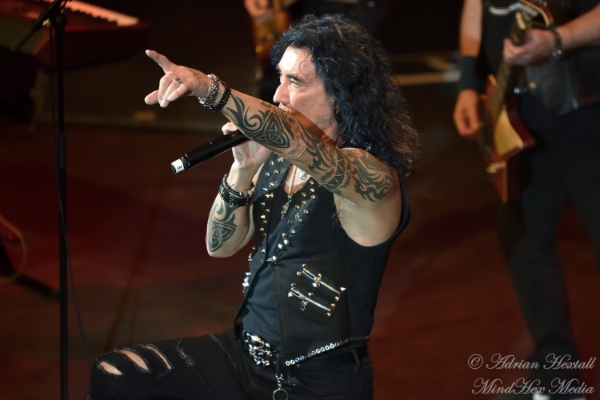
AH: Looking all the way back to when you and Michael were working together, I understand at a time, you and Michael weren’t necessarily living close together so you were sending the music back with some voice between you. But it’s in the days before the internet, so what do you send back with the voice? We’re talking like audio tape, yes.
RM: Oh, yes. Cassette tapes.
A lot of cassette tapes. And what Michael habitually would do, he practices an enormous amount. His guitar is an extension of himself. If anybody tells you that you don’t believe it, it is the truth. It never leaves his body. It’s always there. And so when he’d be getting his daily routine of practising, he would always have at the time a cassette tape, close of hand. And he practices rugs and do whatever, then in the midst of that something would come to hit record. It didn’t matter if it was two bars, four bars, whatever it was. And so on that cassette tape, you could have– Oh, Lord. However, many ideas would come to him during that one particular practice session.
So put that into a week and a month, right? That’s a lot of cassette tapes. And he would not start anything. He wouldn’t do anything like that. He would just send me a pile of this shit, right? And he would go, “If somebody is there, just listen and pick what you think we should work on.” And I’d start listening and I’m going, “Where do you start? And what is the beginning of this? Is that the song? Is that the idea?” So I would sift and a conglomerate of ideas. I would start dissecting and hook up with him when I’d have some song ideas and I’d start to edit. So I’d take a little piece of this idea and then I’d go, “That goes with this and that doesn’t go with that and change that. Let’s not do that in the beginning, let’s do that at the end.” And we would get through it. I’d come in and I’d be somewhat prepared. I’d go, “Okay, this is what I have and tell me what you think. Should we move that around?” and we’d sit and we’ve go through it. We go down like that…love that beat, hate that beat, dump the whole thing and hate the whole thing and start again. And that’s what we used to do. It was basically dissecting, sticking on where the leg and put the leg where the shoulder should be and that sort of stuff. That’s how we did the writing in the beginning. When we first hooked up in Hanover, in eighty five when we first started to write.
AH: This would be on the back of Perfect Timing?
RM: Yes, when we were writing Perfect Timing, we would lock ourselves away…no exaggeration, six to eight hours everyday. We actually would schedule ourselves for a regular eight hour working day. We took it seriously. We wanted to treat it like a job. We’d start early in the morning and we were trying our damn best to at least get the resemblance of some sort of an idea by the end of each day. And then at the end of the week, we would start to dissect again and go, “Okay, how did we do? Now, let’s start to really hone this down to a workable demo recording type of idea.” And at that time we were so far advanced, we had a four track recorder. [laughs] But that worked amazingly well, because we could put– it all tracks down and stick a vocal over the top and put the click tracker on and we have something to stay on point with. And then we would actually take it to Rudolf [Schenker], ’cause Rudolf had a studio, also in Hanover. And then we would take what we considered these nearest done and finished idea. We would take it to Rudolf and start to record in a better fashion, so we could leave room for overdubs and go, “Wow, this is shaping up!” And Rudolf’s workers were really hard and they go, “Ahh, that’s good. Now, let’s see if we can do any better.” Because Rudolf is like that. It’s like–you finish it and you go uhm you’re not finished.”
[laughter]
RM: You know, he would like stir the bottom end of the pot as we say. And that’s how we did it. And then we demoed. We demoed a bunch of tunes and before you knew it, we had the Bass and A Perfect Timing starting to come together. And then again, we ended up mixing Perfect Timing with Andrew Johns here in LA, and not too similar at all when it came to Save Yourself was still in the cassette era. And I was here first. I was in the States first and then I would get together with Frank Filipetti who produced that Save Yourself record. And Frank was great because Frank showed me a lot of things and I used to have a habit of writing in the third verse and he goes, “No, no, no, no, no…make this about yourself.” I’m like, “Well, it’s not about me,” and he goes, “Yeah but pretend it is.” And so he would have me restructure lyrics in a more personable and he goes, “People pick up a lot better, it’s like make it about you,” and I went, “No, make it about the other guy!”
So he really showed me a lot of stuff in terms of writing, because he worked so much with Carol King and did a lot of her live recordings. So extreme from Carol King to– he did all of the Foreigner records of course so he was used to some very heavy hitting song writing. And then of course he was so diversified; he would work with Korn as well so it’s another side of the spectrum of music. And so I learned huge amount in terms of structure from him that makes sense at least as far as the record labels are concerned.
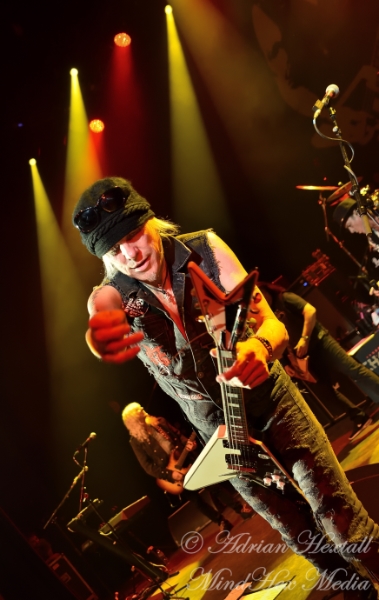
AH: Those three albums that you did with Michael are very well respected ones a great reputation.
RM: Thank you. We enjoyed it. I will say this much, I think now that we’ve come full spectrum, I think Michael tends to think that maybe they were… I don’t know if this is his favourite kind of music to play. It certainly made the dent that was necessary, I think. Michael had never seen MTV; he’d never seen daytime radio on the States. He’d never seen commercial radio per se.
The gate was opened for everything else to follow through and I think that was important. That was really important. I had a great time. I still have a great time. I absolutely love the fact, love the fact that we’re going back in and doing it now. Because I think the pressure is off. There is no pressure. We can actually now, really, really enjoy it and nobody expects anything more really than what you can give. And I want to give it a hundred percent. I just want to go out there and be totally conceited when I go, “Huh! I’m gonna make you feel like this, we never stood still.” And it’s like absolute blast. I’m having so much fun doing it. We haven’t done much yet, we’re already scheduled for these two weeks before we would actually see you in London. We’ll get into Spain, Germany and I think one in Holland. I know there’s 20 shows already slotted for March, April of 2018 here in the States. And there’s talk about more Japan, there’s talk about possibly more UK. So it ain’t over ’till the fat lady sings and I love that song.
AH: The Shepherd’s Bush Empire Show is going to be pretty special for you?
RM: I feel like a little child because also I get to see my sisters. I have four sisters in London.
So it’s like a little family reunion. And it’s something even more ironic about that. Only one of my sisters, my little sister is actually the only one who’s actually ever seen me perform. [laughs]
AH: Oh, are the other three going to come and see you this time?
RM: If they’re going to come in, I think it will scare the crap out of them. [laughs] I don’t think they have any idea what to expect, you know.
We certainly know what to expect. The reviews of the Japanese shows have been very positive. Our review of the London show will follow shortly.

